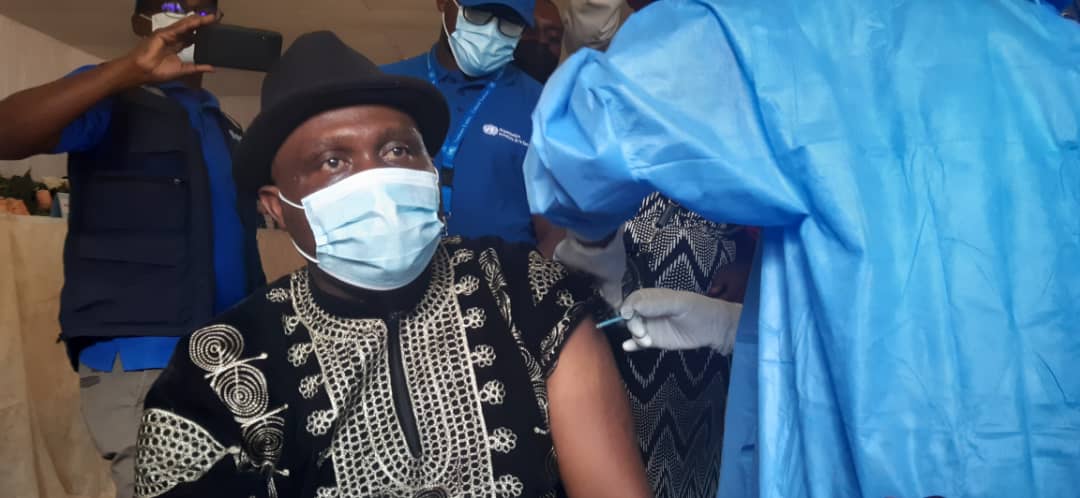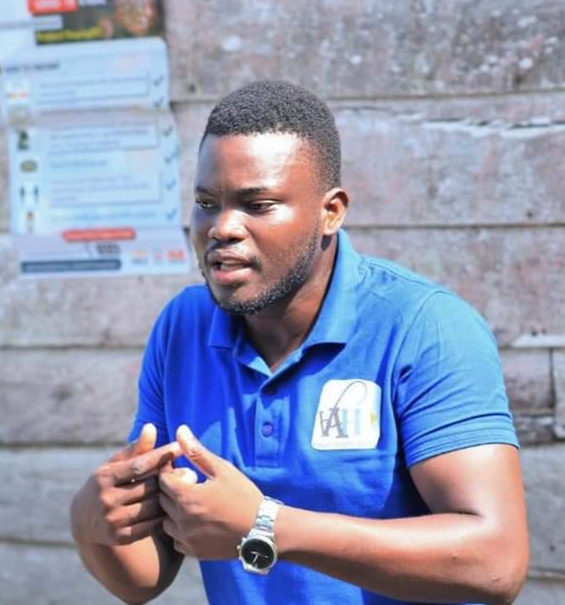By Pedmia Shatu
Women Peace builders in a group photo
Mediation Women Peace builders within the North West Region have strengthened their capacity in Meditation and Peace Building in amidst the COVID-19 Pandemic and crisis rocking the region. This was the outcome of a two day workshop on advancing women’s rights in response to community mediation and peacebuilding processes with the hope of shifting the advocacy of women mediators in communities.
The Workshop was organized by Mother of Hope Cameroon MOHCAM with support from Women Mediators Across the CommonWealth for members of the Women Peacebuilders’ Network WOPEN NW.
In November 2020 MOHCAM executed a project on strengthening the capacities of members of the Women Peacebuilders Network-WOPEN to Effectively Engage in Mediation and peacebuilding in response to crises in the North West Regions. Through this activity, over twenty-six (26) women leaders from the grassroots and community organizations were trained with support funding from the Women Mediators across the Commonwealth.
During this workshop an action plan for the network was developed for one year and it’s against this backdrop that this project seeks bridge the skill gaps of network members in the domain of human rights, lobbying and advocacy, the use of the social media handles and online tools for effective communication to enhance their effective participation in community mediators and peacebuilders.
Reacting, Adah Mbah Executive Director of MOHCAM highlighting aspects of the activity enhance the capacity of women to serve as mediators for peace, increasing women participation in lobbying and advocacy in peacebuilding while encouraging the women peace leaders to increase their visibility and results in the field with the effective use of the social media to enhance their peacebuilding actions.
Executive Director of MOHCAM
During the two day session, the participants we educated on the the Role of the National Commission in defending the rights of women rights defenders and CSOs. Barrister Agbor Nkeng noted that women are great peacebuilders and help to consolidate peace as such are helping the government to realize her objectiveWith the crisis that has gone on for over 5 years no especially as women continue to bear the brunt, there was the need to engage them in a self care session particularly through a trauma healing session to help them develop coping mechanisms with loss,grief and bereavement. Mme. Mah Fundo advised them to quickly talk to a specialist, find a support system, try to maintain your hobbies, draw your comfort from your faith and take care of self so as to get out of any of such situation.
To further intensify the healing process and wounds of the women peacebuilders, practical sessions, outdoor activities and spiritual sessions were upheld as many participants at the end of the two days expressed satisfaction and testified of going back well equipped and light hearted to give back to the community.
Legal expert
In order to amplify women’s voices in human rights and community meditation, Barrister Blessing Chia also member of the network, urged the women peacebuilders to uphold the qualities and skills of a good mediator, so that they can be able to, help both parties maintain a healthy relationship even after the conflict, ensure peace and calm between the parties as well as instill trust in both parties for sustainable peace. “We can amplify women’s voices by, empowering women, building relevant networks that bring women together and carrying out advocacy campaigns.
In order to intensify their actions and create greater impact on a wider scale, the women gained skills in advocacy and lobbying in peacebuilding and also how to use the Social Media for effective communication. “A lot can be done to shift the mindset of the online community if social media users who are peacebuilders, can use it positively. However, the dangers abound if you use it poorly. I will suggest that we do not share just for sharing sake or join the band wagon of those who propagate hatespeech, misinformation and disinformation. Our social media handles should be used to build peace and encourage non violent actions,” Rosaline Obah, communication expert indicated.
Rosaline Obah Akan, Communication expert
With
the crisis that has gone on for over 5 years no especially as women continue to
bear the brunt, there was the need to engage them in a self care session
particularly through a trauma healing
session to help them develop coping mechanisms
with loss,grief and bereavement. Mme. Mah Fundo advised them to quickly talk to a specialist, find a support
system, try to maintain your hobbies, draw your comfort from your faith and take care of self so as to get out of any
of such situation.
To
further intensify the healing process and wounds of the women peacebuilders,
practical sessions, outdoor activities
and spiritual sessions were upheld as many participants at the end of
the two days expressed satisfaction and testified of going back well equipped
and light hearted to give back to the community.




























